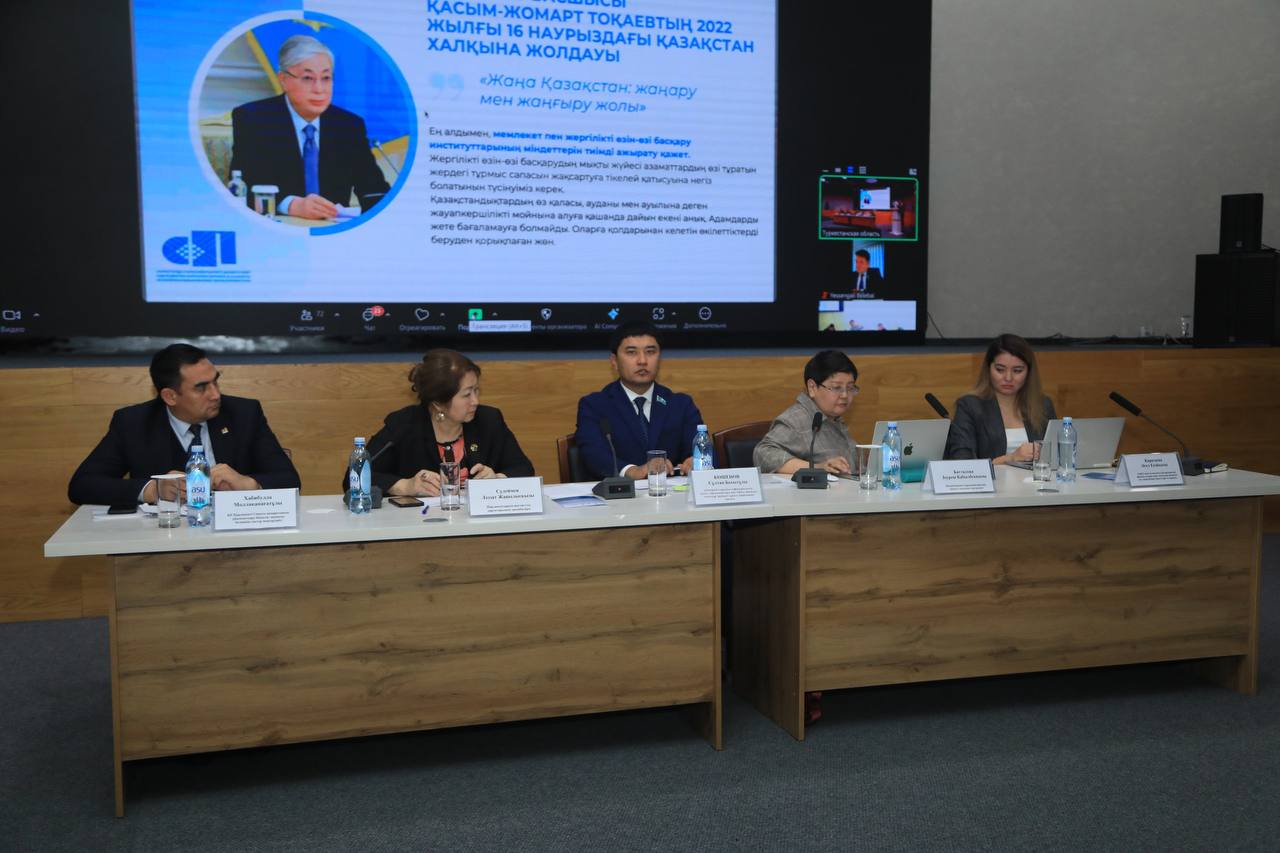
A training session for maslikhat deputies from the Zhambyl, Kyzylorda, and Turkestan regions was held in the historic city of Turkestan. The event was organized by the Institute of Parliamentary Studies under the Presidential Administration of Kazakhstan, the Parliamentary Development Foundation, the Association of Maslikhat Deputies of Kazakhstan, and the OSCE Program Office.
Deputy Director of the Institute of Parliamentary Studies, Lyazzat Zhanylskizzy Suleimen, addressing the participants, emphasized the importance of systematic work to improve legislative norms aimed at enhancing the quality of life for citizens.
This training is part of a large-scale program for cooperation between the Senate of Kazakhstan and the maslikhats, approved in 2024, aimed at improving the legislative competencies of deputies and strengthening their law enforcement skills. The training addressed key challenges faced by regional leaders, such as public oversight, social protection, and strengthening security measures for citizens.
Welcome speeches were delivered by Sultan Kushenov, Chairman of the Permanent Committee of the regional maslikhat of the eighth convocation, Zaurech Batalova, President of the Parliamentary Development Foundation, and Asel Karataeva, OSCE Representative. The speakers emphasized the importance of such trainings for strengthening the institution of maslikhats and enhancing their role in local self-governance.
In her report, Zaurech Batalova provided a detailed overview of the legal framework governing the activities of maslikhats. Expert from the Institute of Parliamentary Studies, Meruert Kabyldayeva, highlighted the importance of interaction between deputies and Parliament, and the role of maslikhats in addressing the pressing issues of citizens. She stressed that effective communication with voters, including through social media, allows for more accurate identification of public needs and a quicker response to emerging problems.
In his presentation, expert from the Institute of Parliamentary Studies, Zhanibek Sattibaev, outlined key issues related to land resource management at the administrative-territorial level. Specifically, he pointed out the shortage of pasturelands in rural areas, conflicts arising from overlapping land rights, and the need for strict control over land use near water bodies.
The training also covered effective communication with voters, issues of transportation services, urban development, and anti-corruption efforts. Anti-corruption policy was also discussed. Almagul Khasenova, referencing data from Transparency International, highlighted Kazakhstan’s achievements in combating corruption but stressed the need for further efforts at the local level to achieve a truly transparent system of governance.
Concluding the training, the deputies agreed that such events should be held regularly. They not only enhance qualifications but also help to build a strong team ready to work for the benefit of their regions. After all, the deputies of maslikhats hold the key to strengthening public trust in the government and creating a strong connection with the population.



